How Long Do Roofs Last in Florida? The Sunshine State Roofing Guide
September , 2023 | 8 min. read
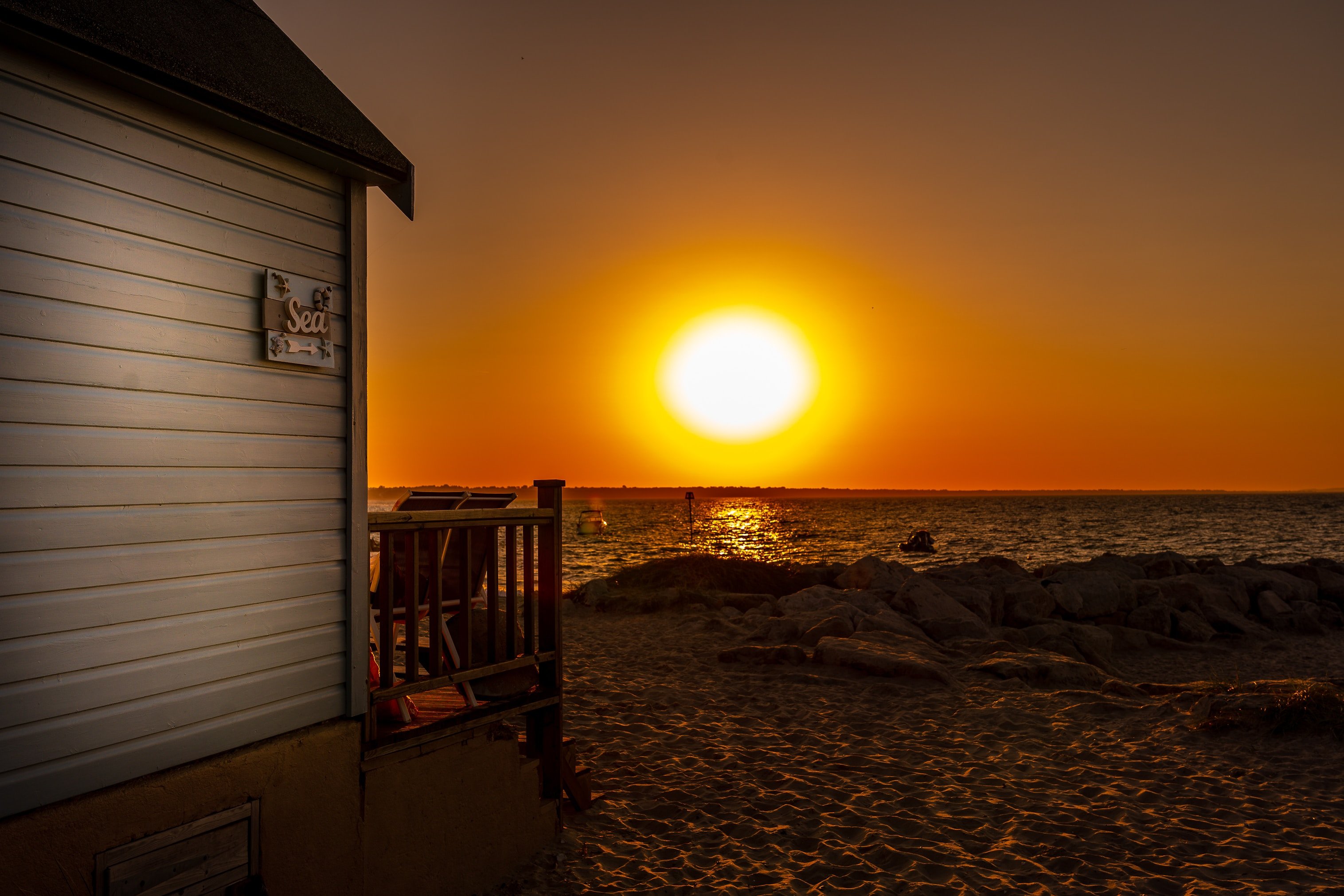
So you've just moved to Florida, the land of endless beaches, theme parks, and sunshine, and you're wondering how long your new home's roof will last. Or maybe you've been living here for a while, and you're concerned that your roof's lifespan is dwindling as quickly as an ice cream cone on a hot summer day?
We get it.
Understanding roofing lifespans can be confusing. Here at RoofCrafters, we bring over three decades of roofing experience to help you demystify these questions and more. By knowing how long materials last, you can make a better decision for yourself.
In this article, you'll learn about the factors affecting the lifespan of different types of roofs in Florida. And hopefully, by the end, you'll have a solid understanding of what to expect when it comes to roof longevity in the Sunshine State. Let's dive right in!
Material Matters: Types of Roofs and Their Lifespans in Florida
When it comes to the lifespan of a roof in Florida, one of the most important variables is the type of material used. The Sunshine State's unique weather conditions make some materials more suitable than others. Depending on the type, style, and geographical location. Asphalt shingles could last 10 to 30 years, metal roofing 20 to 75 years, while tiles could last 25 to 50 years.
Below, we'll dive into the three most popular roofing materials in Florida: asphalt shingles, metal roofing, and tile roofing.
Asphalt Shingles: The Cheaper Choice
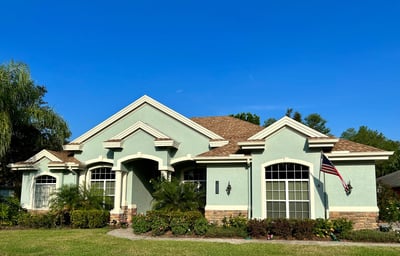
Average Lifespan
3-tab shingles: 10-12 years
Architectural shingles: 15-20
Premium shingles: 25-30
Signs of Aging:
Curling or cupping at the edges, loss of granules, discoloration, and cracks.
Pros:
Asphalt shingles are generally the most affordable option, and they come in a variety of colors and styles to suit any home. They are easy to install, making them a popular choice for many homeowners.
Cons:
Despite their affordability, asphalt shingles are less durable than other options. They can be susceptible to damage from extreme weather conditions, a common occurrence in Florida.
Metal Roofing: The Durable Contender
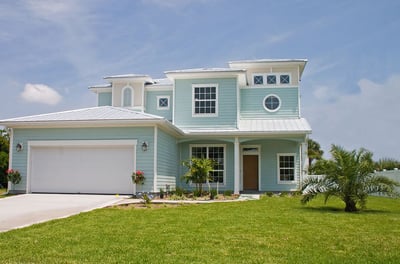
Average Lifespan:
Multi-Rib metal: 20-30 years
5-V Crimp metal: 30-40 years
Standing Seam metal: 50-75 years
Signs of Aging:
Fading color, corroded areas or rust spots, and loose or detached panels.
Pros:
Metal roofs are very durable and can withstand extreme weather, which is great for Florida homes. They are also more energy-efficient, reflecting heat away from your home and reducing cooling costs.
Cons:
While metal roofing is incredibly durable, it comes with a higher upfront cost compared to other materials. But, the long lifespan often makes it a cost-effective choice in the long run.
Tile Roofing: Aesthetic and Sturdy
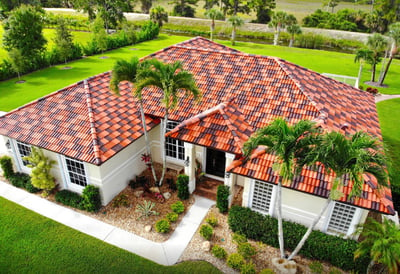
Average Lifespan:
Concrete tiles: 25-30 years
Clay tiles: 30-50 years
Signs of Aging:
Cracked or broken tiles, faded color, or a sagging roof structure.
Pros:
Tile roofing is aesthetically pleasing and also resistant to harsh weather conditions. It can withstand high winds and heavy rains, important attributes in a state like Florida where hurricanes are a concern.
Cons:
The main drawbacks of tile roofing are its weight and cost. Tiles are heavy, requiring a strong support structure, and they come with a higher price tag than asphalt shingles.
When picking materials for your home, think about your budget, style preferences, and plans. Each material has advantages and disadvantages. To make your chosen material last longer in Florida, it's important to maintain it properly.
Factors That Can Shorten a Roof's Lifespan in Florida

The materials used for a roof are important, but other factors in Florida's climate can shorten its lifespan. Understanding these elements can help you take preventive measures to ensure that your roof serves you well for as long as possible.
Factors to Watch Out For:
- Extreme Weather Conditions: Tropical storms, high winds, and heavy rainfalls can cause immediate damage or weaken the structure over time.
- Heat and UV Radiation: The intense sun and heat can cause roofing materials to deteriorate faster, particularly if they are not UV-resistant.
- Salt and Humidity: Proximity to the ocean can result in salt and moisture accumulation, which can corrode roofing materials.
- Poor Installation: Even the best roofing materials won't last if they're not installed correctly. Always ensure you choose a qualified contractor for the job.
- Lack of Maintenance: Infrequent inspections and poor maintenance can lead to minor issues becoming major problems that can shorten a roof's lifespan.
- Tree Limbs and Debris: Falling tree limbs or accumulating debris like leaves can trap moisture and cause rot or mold.
To make sure your roof lasts in Florida, be aware of these factors and take steps to reduce them.
Proactive Maintenance Tips to Extend Your Roof's Lifespan in Florida
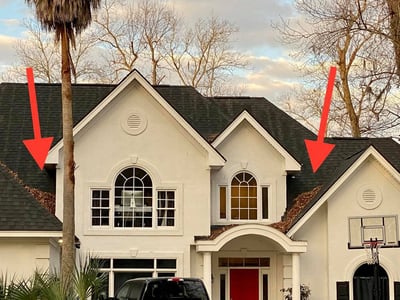
In the challenging Florida climate, it's crucial to be proactive about roof maintenance. A few simple, regular actions can extend the life of your roof, regardless of the material. Here are some tips tailored for Florida homeowners:
Regular Inspections:
- After Major Storms: Inspect your roof for damage after significant weather events like tropical or heavy rainstorms.
- Bi-Annual Checks: Conduct an inspection at least twice a year to catch any potential issues before they worsen.
Clean Your Roof:
- Remove Debris: Keep your roof clear of leaves, branches, and other debris that could trap moisture.
- Gutter Cleaning: Make sure your gutters are clear so that water can flow away from your roof.
Check for Corrosion and Wear:
- Look for Rust: If you have a metal roof, inspect it for rust and consider re-coating it if necessary.
- Check for Cracks: For asphalt shingles or tiles, look for any that are cracked, curling, or missing.
Repair Damages Fast:
- Fix Leaks Immediately: If you find a leak, repair it as soon as possible to prevent further damage.
- Replace Damaged Shingles or Tiles: Don't wait for more damage to occur; replace any damaged or missing shingles or tiles right away.
Professional Help:
- Consult Professionals: Sometimes it's better to get a professional assessment. Especially if you suspect underlying damage.
- Regular Professional Checks: Consider a professional inspection every year for a thorough evaluation.
If you follow these tips, your roof can handle tough Florida conditions and last longer. This saves you stress and money.
Your Florida Roof's Best Years Are Yet to Come!
You've navigated the murky waters of Florida roofing materials. You've learned the telltale signs of aging and even picked up some golden nuggets on extending your roof's lifespan. Whew! That's some heavy lifting, right?
Here at RoofCrafters, we're not just about installing roofs; we're about empowering homeowners. We have 30 years of experience dealing with Florida roof challenges. We're here to help you make informed decisions.
In Florida, how long your roof lasts depends on different things, such as the material, upkeep, and the environment. Yet, with proactive steps and timely interventions, you can add years to your roof's life. Ready to give your roof the long, happy life it deserves? Reach out to RoofCrafters; we're here to help you every step of the way.
At RoofCrafters, our mission is to provide job opportunities for others to thrive and grow while making a meaningful impact within our communities.



